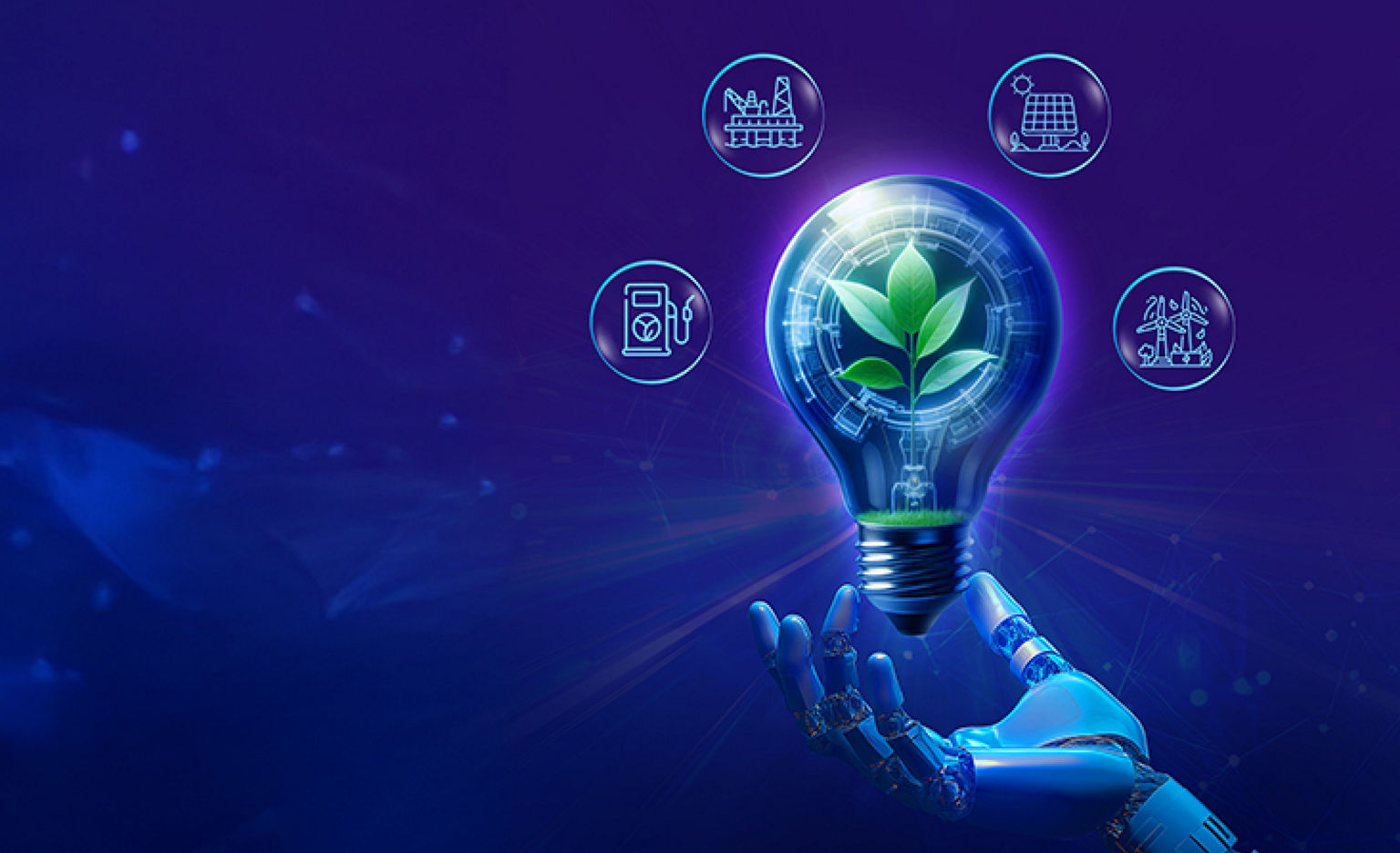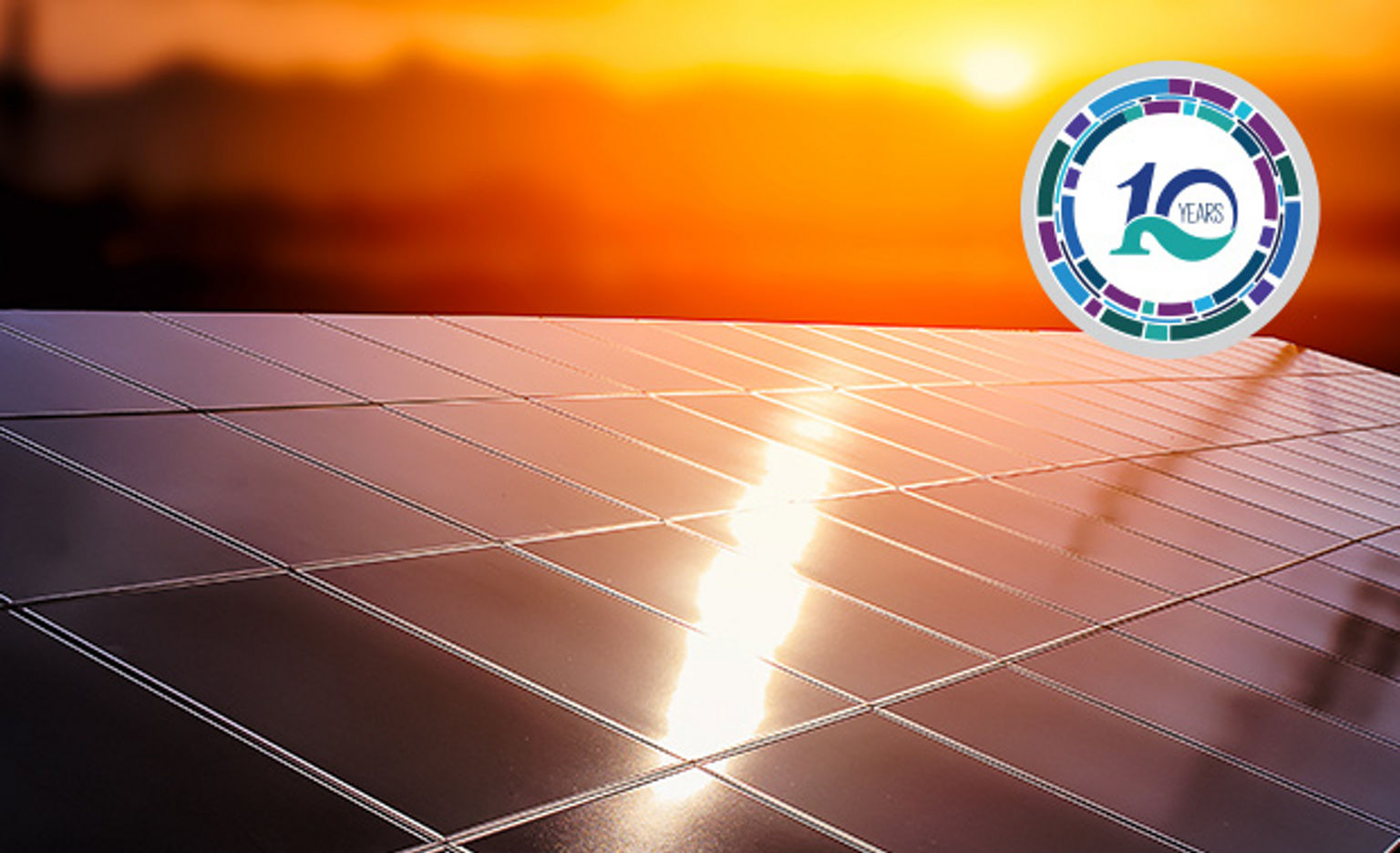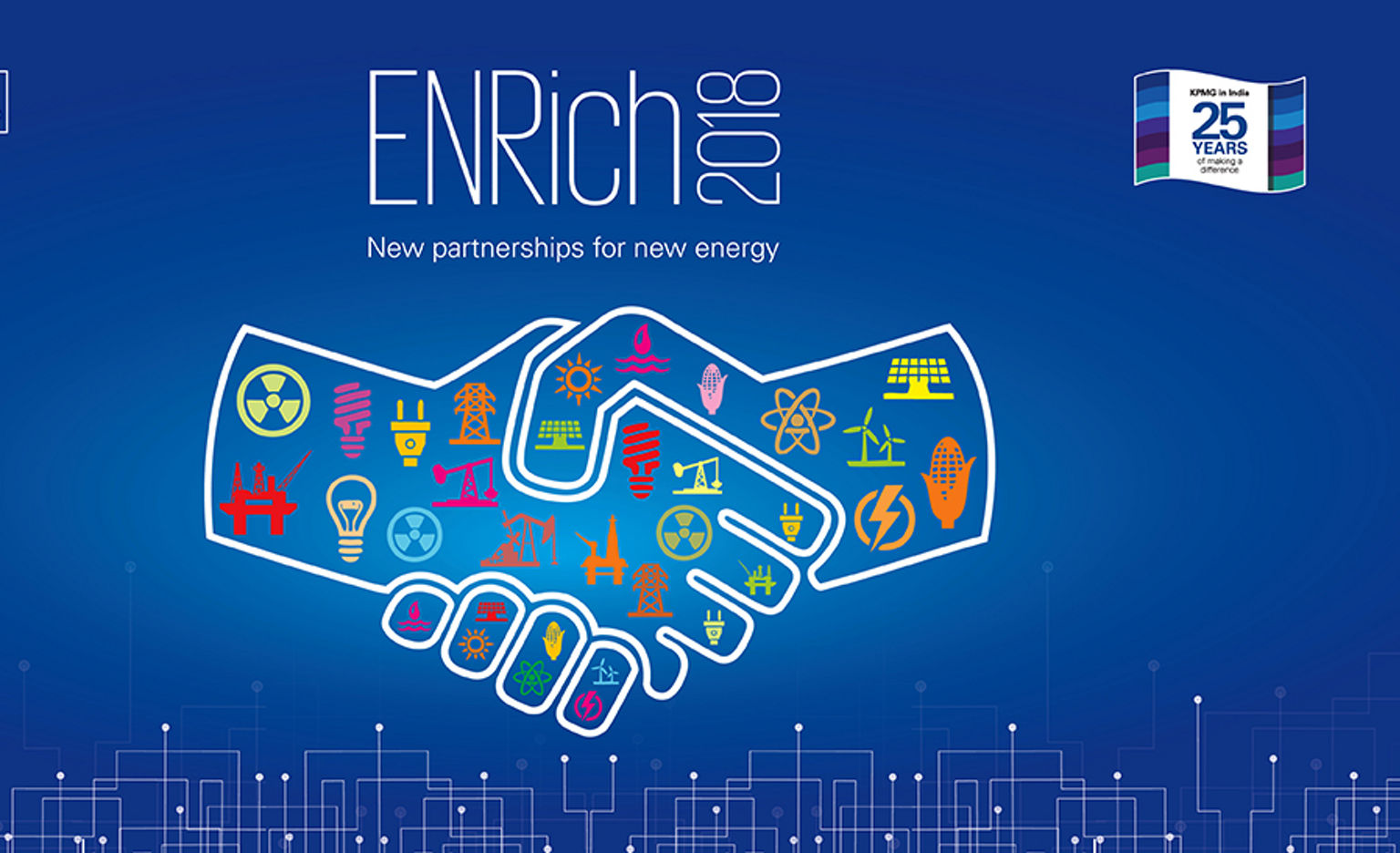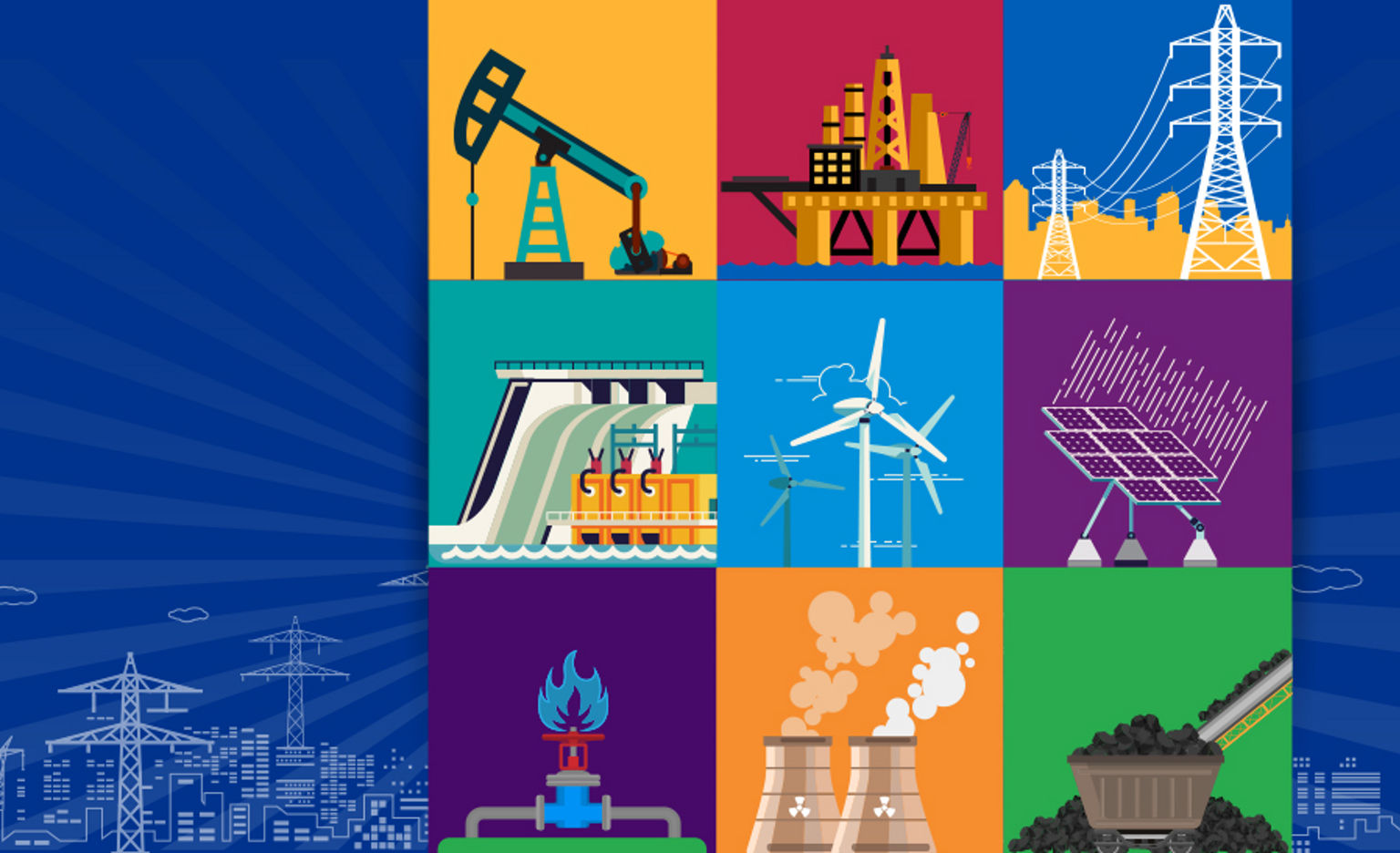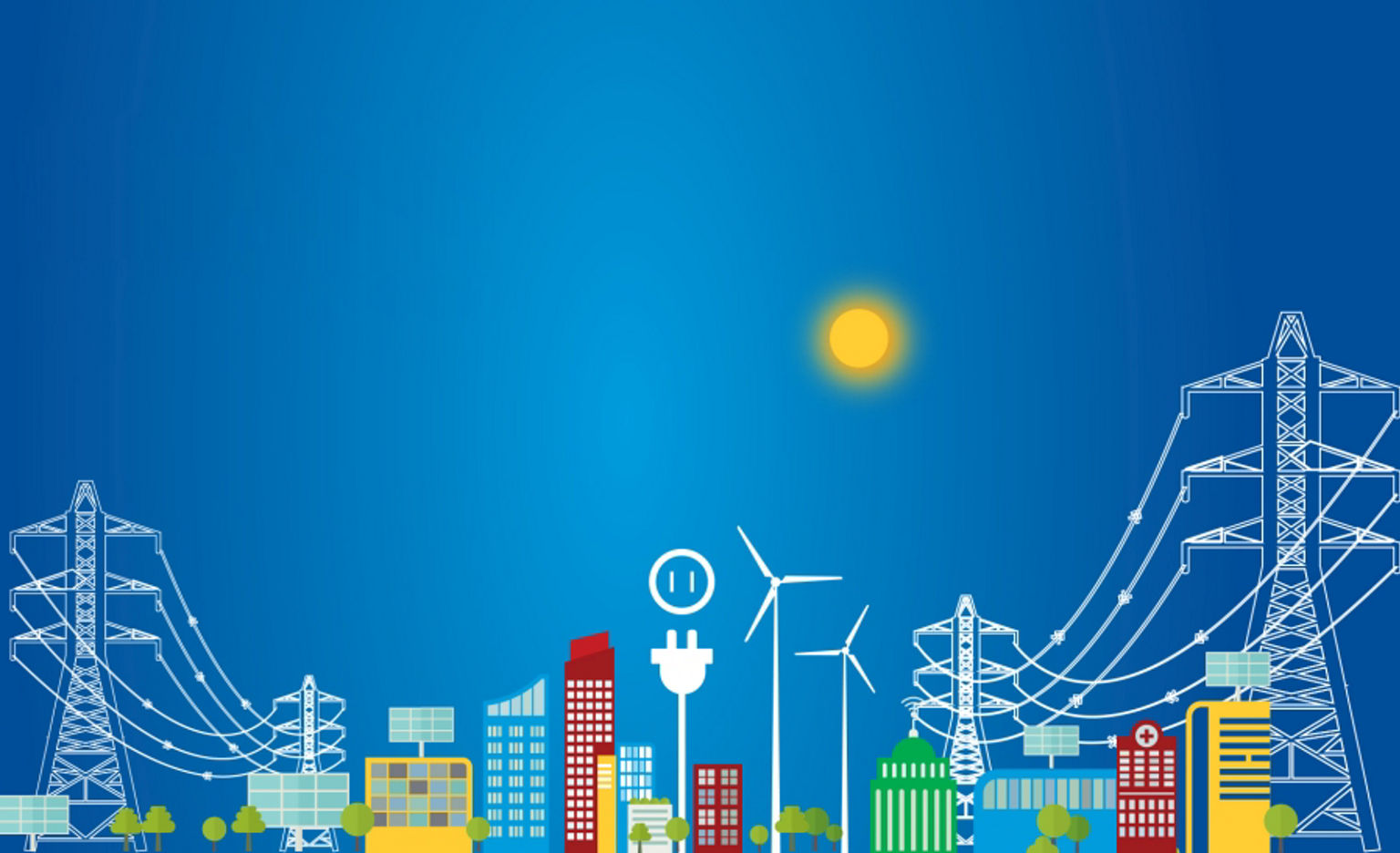KPMG received top rankings across multiple categories in the Source client perceptions study: Perceptions of Consulting in Energy & Resources in 2025.
India’s economy is embracing renewable energy at a rapid pace
There is a strong two-way relationship between economic development and energy consumption. On one hand, growth of an economy, with its global competitiveness, hinges on the availability of cost-effective and environmentally benign energy sources, and on the other hand, the level of economic development has been observed to be reliant on energy demand.
KPMG ranks #1 for "most well-known firms" in Energy & Resources by clients
India’s energy requirements have grown significantly since market reforms were initiated by the Government of India in the 1990s. Energy sector reforms, capacity addition and improvement in existing infrastructure are the government’s primary focus areas as energy is a key necessity for meeting the country’s high economic growth expectations.
The focus is on strengthening of distribution and transmission infrastructure, development of hydropower, conventional power, energy storage and atomic energy. Customer services enhancements such as enabling new connections, security deposits, bill payments, lodging of complaints and reconnections through digital platforms are critical to be future ready.
How can KPMG in India help?

KPMG in India’s practices are organized around the understanding that no two industries are alike. In the case of energy, we maintain a strong industry focus that takes an advanced approach to service delivery using consistent and tested worldwide methodologies to deliver objectivity, valuable insights, and robust opinions of Tax and Advisory services to clients.
From our position as the professional service providers of choice to the some of the world’s largest energy and natural resources companies and domestic stalwarts, we are acutely attuned to leading practices throughout the industry and around the world. KPMG in India’s ENR practice strives to address the wide range of issues of companies across the energy value chain, in the defined sub sectors of Power and Utilities, Oil and Gas, Mining and Renewables.
Our professionals have the technical skills and industry-focused experience that can enable them to understand the issues energy companies face, along with vast experience with key government bodies.
In addition to this, with focus on our core approaches across strategic planning, operations improvement, transactions advisory and project planning , we seek to ensure that we are ever ready to address our clients’ primary concerns.
Driving growth with Energy, Natural Resources and Chemicals
- India's energy PSUs spark a new era of bold transformation
- India’s Power Market: The Case for Market Coupling
- Confederation of Indian Industry Mumbai International Summit
- Auto EV Conclave
- AI-Powered Transformation in the Energy
- Aligning India's energy evolution with resilience and reforms
- Sustainable skies
- The challenges, needs, and potential solutions for the future of offshore project
- ENRich 2025: Reimagining the Energy Enterprise
- Economic Times Energy Leadership Summit
- Government to greenlight incentives to drive green steel output
- Indian Chemical Council (ICC) Nicer Globe LogNext 2025
India’s energy PSUs have delivered one of the decade’s strongest transformation stories, rebuilding themselves with purpose, speed, and a clear focus on national goals. They reshaped how households cook, how cities use power, and how the nation views clean energy, from expanding LPG access to integrating record levels of solar and wind. Their biggest shift is mindset. They chose both legacy and new opportunities and turned that into momentum. A decade on, their reinvention shows that large institutions can change at scale when purpose and people align.
Market coupling for India's power market will likely increase trading volumes by aggregating bids across exchanges, creating a single clearing price. While this improves efficiency and transparency, it reduces individual exchange autonomy and may limit flexibility in price discovery for participants.
Mumbai powering the future of India - Energy transition, data centers & cleantech revolution:
Mumbai has the ambition and capital to power India's digital transformation but the scale is often underestimated - adding 1 GW of data-centre capacity alone can raise peak demand by up to 25%, even before accounting for growth in other sectors. Turning ambition into outcomes will require coordinated programmes with clear ROI, policy certainty, and a strong innovation backbone.
Jeffry Jacob
Partner and National Sector Leader - Automotive, Industry Group Leader - Chemicals
KPMG in India
EVs as climate catalyts: Accelerating India's path to net-zero mobility:
EVs become true climate catalysts when we integrate clean electrons, circular batteries, and bankable models, underpinned by interoperable standards. India's transition must have solutions that work for premium buyers, mass market users and public transport. A multi-pathway approach keeps the focus on abatement per rupee and energy security.
I've witnessed numerous shifts in the energy industry. However, the current era, driven by artificial intelligence, is truly transformative. From optimising complex operations and enhancing resource management to accelerating scientific research and reimagining business models, AI is fundamentally reshaping how we approach energy.
The future of exploration in India will be digital data-led, smarter.
India holds over three million square kilometers of sedimentary basins still to be fully understood. Moving from underexplored acreage to integrated, data-rich subsurface intelligence will be key to unlocking this potential. Digitalisation and advanced analytics are already reshaping exploration workflows — improving accuracy, reducing cycle times, and strengthening cost efficiency. This journey will also demand deeper collaboration. Geoscientists, data specialists, engineers, global partners, startups, and academia must jointly create solutions that reflect India’s geological and energy context.
Equally, we need to empower talent and break silos. The next breakthroughs will come from younger professionals who are encouraged to experiment, challenge assumptions, and innovate with speed. Ultimately, the move from rock to cloud is not just technological — it reflects a mindset shift where exploration evolves from resource extraction to sustainable, future-ready energy development.
India’s upstream story is being rewritten with data, technology, talent, and shared ambition.
- Vivek Rahi
- Jodhbir Sachdeva
India’s SAF journey will be built on the intelligent use of our abundant feedstock base - from agricultural residues and municipal solid waste to press-mud and used cooking oil. With technology pathways such as HEFA, alcohol-to-jet and FT moving towards scale, it is important that we develop multiple pathways in parallel, as no single route can meet our long-term needs. The key will be establishing viable supply chains and long-term offtake frameworks involving airlines, OMCs, and technology providers.

India's aviation sector is at a defining moment, balancing rapid growth with climate responsibility. Even as airlines induct new fuel-efficient aircraft, overall fuel use continues to rise with expanding capacity. Sustainable Aviation Fuel offers the most scalable path towards decarbonisation and presents India with a strategic opportunity to lead this transition.
With offshore contributing nearly half of India’s oil and gas output, the nation stands at a pivotal juncture balancing immense opportunity with strategic complexity. Almost 80% of India’s untapped reserves lie in deep-water and ultra-deep-water frontiers, positioning offshore as the next growth engine for energy security.
To realise this potential, India must unlock policy enablers, foster collaborative investment models, and accelerate technology adoption. The true differentiator will be how we align this offshore momentum with our long-term net-zero commitments and ensuring that growth and sustainability advance hand in hand
- Yezdi Nagporewalla
- Anish De
- Shalini Pillay
- Sammy Ahmed
- Michael Hayes
- Colm O'Neill
From a focused internal dialogue to a global platform for action — ENRich has come a long way. Over 16 years, it has grown in scope, stature, and relevance, becoming a catalyst for conversations that matter. This year’s theme reflects a powerful truth:
Sustainability is no longer an aspiration – it’s a test of resilience
As India continues to lead global growth, driven by strong domestic demand and macroeconomic stability, the energy sector stands at a pivotal moment.
Looking ahead to 2030, the modern energy enterprise will be transformed – with AI at the core and GCCs as the engine of execution. Three priorities will define this transformation:
- Embed AI across the enterprise – from operations to decision-making
- Reimagine structures and operating models – with GCCs at the center
- Elevate culture and ways of working – because transformation is as much about people as it is about technology
By 2050, India is set to emerge as the world’s largest refining powerhouse, while energy transition is a prevalent topic among the affluent, for the less privileged it is simply about access—providing energy to those who currently do not have any. Balancing these priorities is essential as we plan for an inclusive energy future.
Mobilising climate finance in India depends on policy certainty and investible NDCs. A strong project pipeline, backed by transparent carbon markets, builds confidence, and draws capital, while early involvement of insurance companies can unlock additional risk-sharing in emerging market
AI holds immense potential to optimise energy use and strengthen data centres, but public trust will only grow when expectations are managed realistically and AI consistently delivers measurable results, not magic
Nikhil Moghe
C&O - Energy & Infra - O&G
KPMG in India
Role of oil & gas in the changing energy landscape
The Indian energy sector, and particularly the oil and gas domain, is navigating a period of profound transformation. Two powerful forces are shaping this evolution: first, the imperative of energy transition and decarbonisation; and second, the emergence of AI-enabled innovations and interventions.
Secondary steel producers contribute more than 50% of the domestic steel production, and because of the scale, relevance and contribution without decarbonising this sector, India can’t achieve its net zero goals.
These producers use electric arc furnaces and induction furnaces; the latter tend to be more rudimentary operationally, with potential to address operational efficiencies and utilise greater renewables & scrap.
- Anish De
- Jacob Jeffry
- Aman Sethi
CXO imperatives for reimagining chemical supply chains
Reimagining chemical supply chains demands both vision and action. Embedding resilience, tackling cross-border and warehousing challenges, and building digital-first cultures will define India’s journey to sustainable, future-ready logistics by 2030:.
Jeffry Jacob
Partner and National Sector Leader - Automotive, Industry Group Leader - Chemicals
KPMG in India
Regulatory compliance & global standards in chemicals transportation
As Indian chemical logistics become more globally integrated, harmonising regulatory compliance and logistics standards is essential. Streamlined regulations, effective customs, and unified standards are foundational for safe and globally competitive chemical transportation.
Playbook in action: Resilience, decarbonisation & digitalisation in chemical supply chains
Building resilient, low-carbon chemical supply chains requires decisive action. At the ICC forum, decarbonising transport, managing supplier and geopolitical risks, and strengthening networks through regionalisation and integration emerged as key imperatives.
AI Frontiers
Watch KPMG’s leaders share their views on harnessing the power of AI to unlock unprecedented value and solve seemingly impenetrable problems in the latest episodes of AI Frontiers produced by Reuters Plus
Hear from the experts
India Union Budget 2026-27: Our Sector Insights

KPMG in India point of view 2026 - Energy and Natural Resources
Ease of doing business, targeted rationalisation, incentives, certainty in digital governance, exploration and refining of critical minerals and IFSC
India Insights
Our insights is your gateway to thought leadership and in-depth reports. Explore our curated collection of valuable content, where we delve into complex business challenges, share industry trends, and provide actionable insights.
Something went wrong
Oops!! Something went wrong, please try again
Our events through the years
Media
Global insights
Key Contact
Jeffry Jacob
Partner and National Sector Leader - Automotive, Industry Group Leader - Chemicals
KPMG in India
Siddhartha Malaviya
Partner - GBS Advisory, Sector Lead - Energy and Natural Resources Global Capability Centers
KPMG in India
- Item 1
- Item 2
- Item 3
- Item 4
- Item 5
- Item 6
- Item 7
























